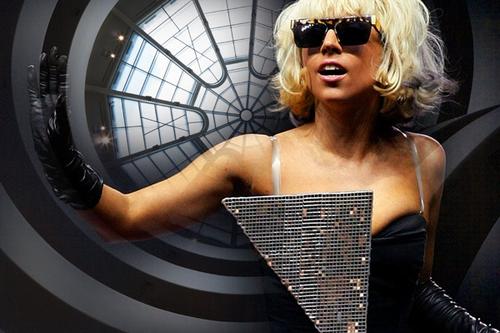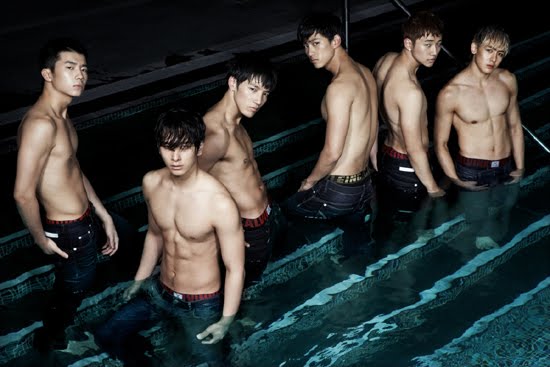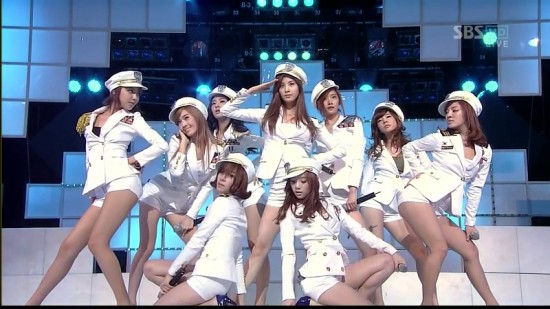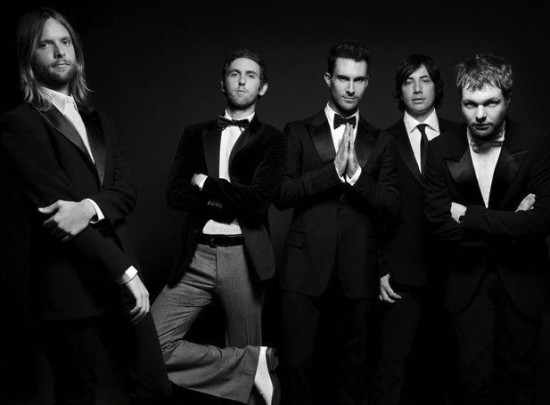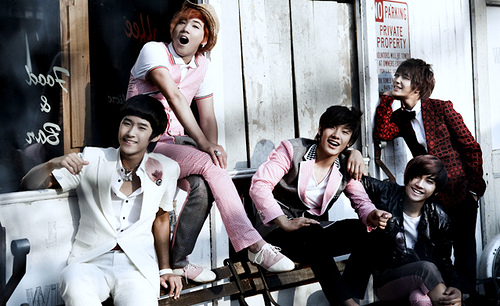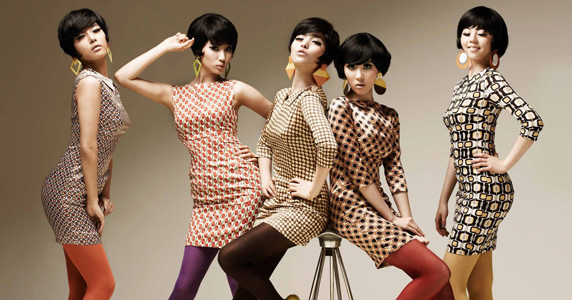Ever since executives consciously decided to promote their pet idols overseas, international fans have become a small but vocal and potentially influential part of the fan base. They come with a lot of opinions, opinions substantially different from those held by fans back in South Korea. This shouldn’t be a surprise. They come from different countries, and therefore have different perspectives on both South Korean culture and the idol scene. Some dive headfirst into the K-pop scene, and are overflowing with good things to say, and feel that South Korea can do no wrong. Some have a love-hate relationship; they enjoy, but can’t quite keep themselves from turning up their noses at those poor, backwards, stuck-in-the-90s idols. The more extreme of both breeds have rather obvious double standards that deserved to be touched on.
The members of the first, rather devout breed are commonly referred to as “koreaboos,” and not without good reason. They believe that K-pop is the pinnacle of the international music industry. They believe that South Korea can do absolutely no wrong, and anything that any idol does is automatically superior to what those awful, sleazy Western artists do. Just take a look at YouTube. On any given page belonging to an idol, you’re likely to see the comment “OMG! Super Junior/SNSD/Wonder Girls oppas/unnies are so talented and pretty and amazing! Not like Western crap like Lady Gaga and Rihanna, who have to sell sex to be famous and have no talent. I prefer K-pop because it’s not dirty and all about girls and clubs and drinking like Western music.”
Western music sells sex and K-pop doesn’t? Don’t be ridiculous. K-pop is all about having the right look, and selling it to an audience. What are shirt-ripping boy bands along the lines of 2PM doing if not selling sex to pre-pubescent fan girls? And speaking of provocative images: ever taken a look at the average music video for a girl group? The little girl voices, the doe eyes, the Lolita outfits showing off legs that go on for miles: that’s selling sex if I’ve ever seen it. And unlike the average Western artist, they’re not gunning for a young, hip fan base. They’re quite clearly selling to the men who favor the Lolita look. Just check out the demographics for the average SNSD video: popular with males ages 45-54. What does that tell you about the market for these groups?
Furthermore, ardent K-pop fans love to complain about “dirty” lyrics in Western songs. Sure, there’s some pretty provocative stuff out there on American or UK top 40 radio. But don’t count your idols out of the game. K-pop lyrics can have some interesting subliminal messaging themselves, albeit in a more subtle manner. Not to pick on SNSD again, but just look at the lyrics for “Genie.” “Tell me your fantasy, without holding back, I’ll show you the genie’s path, tell me your wish, without holding back, I, your genie, will grant them”? That’s pretty provocative if you ask me, especially considering that it’s being sung by a bunch of leggy young girls in matching outfits. Even the video is kind of questionable, what with the pillow fight girl party and the hand-held camera and all.
However, don’t think that any of this puts the elitists in the right. They have their share of complaints towards the K-pop industry, complaints that I myself am guilty of airing sometimes. The war cry of the elitist forum denizens: “K-pop is manufactured crap! It has no soul or creativity, and it’s all a big conspiracy on the part of the big bad entertainment companies, unlike Western music, which encourages talent and creativity!” Oh, please. The average popular singer in the US or the UK is just as much the product of a board of directors as the K-pop one is. The only difference is that they try to maintain the pretense of being legitimate artists, which is arguably even more hypocritical than the K-pop industry, which harbors few pretensions toward artistry. It’s bubblegum pop and it’s unashamed. After all, what’s the real difference between a group like Maroon 5 and a group like FT Island? Nothing, except that FT Island is not afraid to admit that their faces are their main asset.
They also love to complain about K-pop’s obvious fixation on looks over talent, as if it was a problem exclusive to the K-pop industry. Well, don’t get me wrong, that’s an issue that I love to complain about as well. The thing is, picking image over talent is just as much a problem in the West as it is in the Korean industry. Rihanna is a pretty good example of that phenomenon. She’s an ex-beauty queen who often comes under fire for her weak live performances, but she’s still explosively popular. Just a glance at her music videos will tell you what the main visual draw is. There’s countless other female acts out there with mediocre voices and gorgeous faces, not just Rihanna. Even the Lady GaGa phenomenon can probably be explained by looks, not talent. Sure, she’s an amazing singer and no conventional beauty. But what gets peoples tongues wagging? Not her voice or her music, but her outfits and her makeup. She’s emblematic of all things over-the-top, high fashion, and tacky. Her selling point is her image, and not her incredible voice.
In sum, it’s a good thing to keep in mind: International fans, particularly the Western ones who claim to know so much more, are not necessarily more worldly or in the right than the South Korean ones. In fact, half the time, they’ve got glaringly obvious double standards, coming both from the elitist and the koreaboo camp. Do you think that international fans are guilty of double standards? Is this a problem, when they start airing their judgements on K-pop music?
